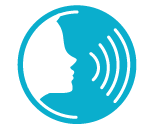Hmm…Private vs. school- based speech therapy
As the new school year is starting, many parents are often confused about whether to go the private therapy route or just wait for their child to be evaluated by the school. Neither of the two options are wrong. Just to clarify, however, there are some differences between the two that parents need to be aware of.
As parents start to raise concerns about their child’s speech and language development/skills, both scenarios involve starting with a thorough evaluation of your child skills, administered by a licensed and certified Speech-Language Pathologist (SLP). Once the evaluation is completed, the child must meet the district’s eligibility requirements to receive the therapy through the school. If your child’s speech and language difficulties have an impact on their academic or social performance, chances are your child would be eligible to receive free speech therapy through the school. However, the entire process could unfortunately take months. This means that some children who start out with private speech therapy could potentially start working on those speech and language goals much earlier. According to multiple research, intervention (therapy) is likely to be more effective when it is provided earlier in life, rather than later. Therefore, waiting is in no one’s interest.
Parents must take into consideration that because speech therapy through the district occurs during the school hours, parents are not able to observe or participate in the sessions regularly. The only way school-based speech therapists may involve parents is by communicating the child’s goals and providing them with intermittent therapy updates through email, phone or a folder. There are also annual meetings held with the parents to discuss progress and update the goals that had been worked on over the past year. In private therapy, however, parent participation is imperative. SLP’s in a private setting often involve parents in treatment sessions. This enables parents to able to learn and carryover anything that is worked on in the session to promote quicker progress and results. Unlike school based therapy, which is mainly in a group setting, private speech therapy is almost always one on one, where all of the attention is given to that one child.
One other matter to consider is that even though SLP’s in both settings, have the same level of educational degrees, their areas of expertise, may differ significantly. A private speech therapist may work specifically with disorders, such as childhood apraxia of speech, voice or fluency disorders. School-based speech therapists follow an educational model, which mainly focuses on listening comprehension, articulation, and expressive language skills. Knowing the differences between school-based therapy and private therapy is crucial in making the right decision. The good news is this doesn’t always have to be a choice between the two at all, however. Your child can reap the benefits from a private therapy, addressing their goals, directly and individually, and at the same time getting the help at the school to accelerate their progress. Giving consent to school-based SLP to communicate with your private SLP about your child’s treatment plan enables collaboration, which is what is in the best interest of your child.
If you have any concerns about your child’s speech-language communication skills and are interested in getting your child evaluated, you’re more than welcome to consider Clearversation Speech and Stuttering Therapy. We offer a through evaluation and speech therapy, both in person and through tele-therapy, for your convenience. If you would like to learn more or discuss your concerns, please do not hesitate to reach out to us. We will be more than happy to help.



Leave a Comments